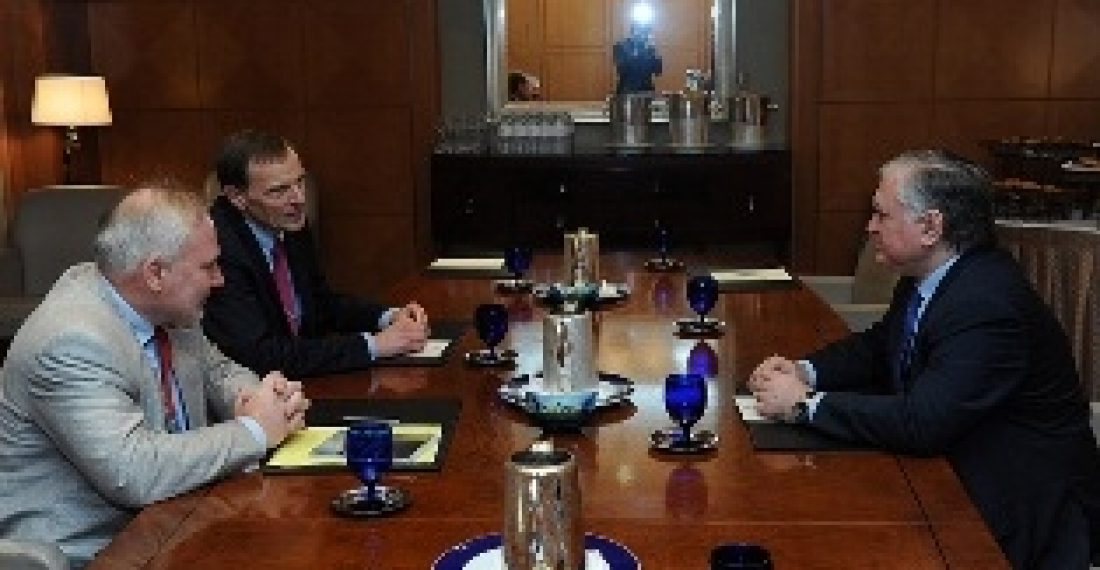Armenian Minister of Foreign Affairs Edward Nalbandian, who is in New York as part of the delegation led by Armenia’s President, on Thursday met with Organization for Security and Cooperation in Europe (OSCE) Minsk Group Co-Chairs Igor Popov and Robert Bradtke, as well as Andrzej Kasprzyk, Personal Representative of the OSCE Chairperson-in-Office.
During the meeting, the interlocutors continued discussing the talks’ process around peaceful settlement of the Karabakh issue. Minister Nalbandian reiterated that the talks can progress if Azerbaijan withdraws those 10 changes it had brought forth in Kazan.
They also reflected on implementation of the accordance, reached at Astrakhan Summit in October 27, 2010, on creating a mechanism for investigating incidents at the line of contact, Armenian MFA Press Service informed.
source: Armenian Foreign Ministry Press Service quoted by News.am







